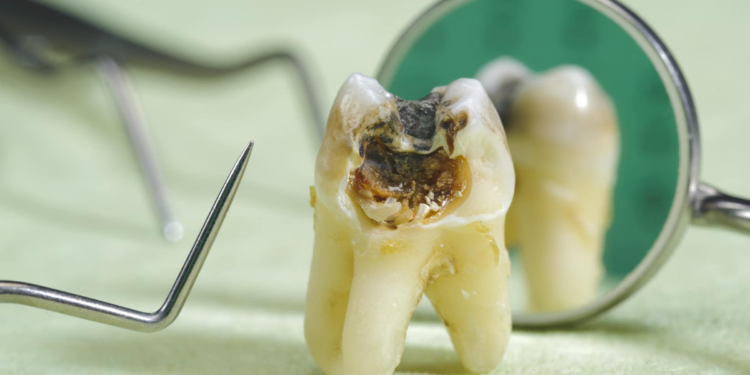Teeth grinding is one of the unhealthy habits that is often known as bruxism. Many people do it during sleep or when they are in depression. There is no doubt that people think that teeth grinding helps in concentration, lifting heavy objects, or during driving. But did you know that grinding teeth is not safe for oral health? It can cause cavities and many other oral health complexities. In this guide, we will discuss all you need to know about teeth grinding. Let’s start to discuss the query deeply: does grinding teeth cause cavities?
What Are The Symptoms Of Teeth Grinding?
First, it is essential to know the different symptoms of teeth grinding. This habit is often related to TMJ. Every person has a unique symptom of teeth grinding. But most of the people have signs that are mentioned below:
- If you have a habit of teeth grinding, then your facial muscles enlarge
- You may feel headaches often
- Fractured teeth and jaw pain is also one symptom of teeth-grinding
- Sleep problems and sore teeth and gum are also involved if one has a habit of teeth-grinding
All of these are early signs that one can have a habit of teeth grinding.
Now the question is, what are the causes of teeth grinding? There are many reasons behind this bad habit. Some of the reasons are mentioned below:
- If you are continuously in stress, then you may grind your teeth
- The second most common reason for this habit is sleep apnea and snoring
- Furthermore, people who have a habit of smoking and drinking alcohol also experience teeth-grinding
Does Grinding Teeth Cause Cavities?
Now it’s time to discuss the query: does grinding teeth cause cavities? The straightforward answer to this query is yes. There is no doubt that teeth are strong but not enough that they can bear pressure from the habit of grinding. People who have a habit of grinding soon suffer from the problem of tooth cavities. Continuously grinding the teeth weakens the tooth enamel. In short, we can say that people with the habit of grinding their teeth are at a higher risk of tooth cavities and tooth decay. Grinding is not gentle to the jaw. Due to this habit, you can feel pain while chewing food. The next question is what the treatment options for this habit are. In the following section, we will discuss the different treatments for people who have a habit of teeth grinding.
What Are The Available Treatments For Teeth Grinding?
Treatment options for the grinding teeth will largely depend upon the root cause. First of all, it is essential to know the exact reason for this habit. Once your dentist determines the main culprit of teeth grinding, then they may suggest you better treatment.
You might be prescribed an occlusal appliance, like a bite plate or night guard, to wear while you sleep. This nifty device creates a protective bridge between your upper and lower white pearls, preventing potential damage. In case you’re dealing with sleep apnea, there’s a specialized appliance, the mandibular advancement device, designed to keep your lower jaw forward and stave off airway collapse while safeguarding your teeth.
For those whose teeth grinding is stress or anxiety-driven, a combination of behavior modification techniques and an occlusal appliance can be effective. Practices such as meditation, deliberate relaxation, and heightened awareness of grinding behavior can help you break the habit.
Teeth grinding is one of the common problems, and many of us are suffering from this habit. If you are also, then don’t worry; it is a treatable disease. Don’t ignore the signs; if you experience symptoms of grinding, make sure to inform your dentist promptly. Early intervention can make a significant difference in preserving the health of your teeth and jaws. If you are at the beginning stage of this habit then the dentist can quickly treat this habit with less time.
Final Words: Does Grinding Teeth Cause Cavities?
In a nutshell, grinding teeth causes cavities that further lead to tooth decay. Stop this habit if you want to protect your white pearls from cavities, etc. When you observe any sign of teeth grinding, consult your dentist as soon as possible. They better understand the situation and suggest suitable treatment according to it.




